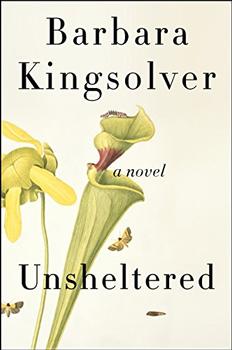How does the powerful experience of loss affect this novel's characters, at personal and societal levels? Is the nature of grief constant across human experience? How might "the loss of what they know" influence people's political behavior?

 How does loss affect this novel's ...
How does loss affect this novel's ...
Created: 10/16/18
Replies: 2
Join Date: 10/15/10
Posts: 3442
How does the powerful experience of loss affect this novel's characters, at personal and societal levels? Is the nature of grief constant across human experience? How might "the loss of what they know" influence people's political behavior?
Join Date: 04/21/11
Posts: 264
One of my favorite quotes from "Unsheltered" captures the perception of loss of what is familiar to us:
"I suppose it is in our nature," she said finally. "When men fear the loss of what they know, they will follow any tyrant who promises to restore the old order."
"If that is our nature, then nature is madness. These are more dangerous times than we have ever known."
I think this quote captures much of what precipitates our current political climate as well as Kingsolver's parallel time frame in the late 1800's. I think this quote captures what is a common response of most humans to moving away from their comfort zones. Perhaps we fight change until all alternatives are uncomfortable.
Join Date: 02/05/16
Posts: 381
I agree with paulak (and Mary Treat, as portrayed by Kingsolver). Loss of what you think you know makes people, many if not most, more apt to turn to demagogues and dictators who promise to restore their sense of security, even if it's only by parroting back to them the false truth they want to cling to.
This is even more a risk when the loss is personal, when it threatens financial security as well as one's sense of identity. Nick is a case in point. He grieves for his lost employment, his health, his loss of any control and independence (and, we find out later, also for his lost wife). He responds with anger and bigotry, looking for that demagogue who will echo his views, instead of focusing on his relationships with his children, for example.
Every significant character in this novel is dealing with loss and grief in some way, but I don't believe people all experience grief in the same way, and certainly these characters don't. Aurelia and Rose, grieving for husband/father and the way of life they used to have, are constantly trying to recreate it, indifferent to all else, more like Nick. Polly, being much younger, perhaps, doesn't share their sense of loss and is more interested in the future. There's a parallel here with Tig, who willingly looks toward a different world, while Willa grieves for her job, her expectations for financial security and her lost way of life -- although Tig has experienced loss of a different kind, and Willa isn't indifferent to the needs of others. Thatcher and Mary have experienced loss in different ways, including financial insecurity, but they too remain open-minded, and open to caring for others.
Zeke, like his father, seems to distance himself from his grief, focusing upon his work, and leaving family responsibility to others, although Iano certainly is more emotionally available than Zeke.
I think facing loss-- whether of a belief system, a way of life/ economic security, or a loved one, is a litmus test. It either makes you give up and abdicate responsibility to others, or it makes you dig deeper into yourself and find new ways to think and live. You can be stuck in denial, or you can accept it and move on.
The challenge Kingsolver is highlighting here is how we choose to respond as a society, to the urgent global threat to human life. Yes, it is a political issue. Most everything that matters is.
Reply
Please login to post a response.